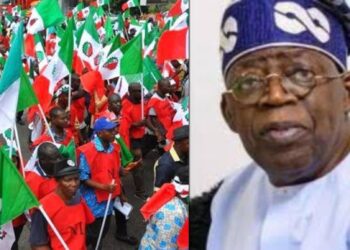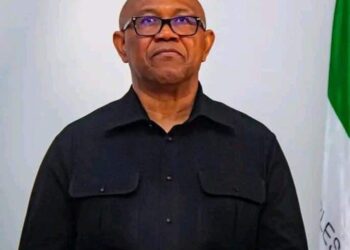Seven years after, the Presidency Monday alleged President Goodluck Jonathan administration worked assiduously to bend the electoral system in its bid to scuttle Muhammadu Buhari’s victory during the 2015 presidential election.
The Presidency’s position was contained in a statement signed by Senior Special Assistant to the President on Media and Publicity Garba Shehu and titled, “Assent into law of the electoral act 2022: Landmark moment for the nation.”
The Presidency argued that Jonathan’s government tried everything within its power to leverage its 16-year incumbency in thwarting the outcome of the election despite the margin of the overwhelming vote polled by Buhari during the election.
The statement said: “It is easy to forget that the election of 2015 was the first time in the history of Nigeria that power peacefully changed hands at the ballot box. It was the first time any party or candidate not from the incumbent PDP had won a nationwide contest since the re-establishment of democracy.
“This came despite the then administration pulling every lever of its sixteen-year incumbency to bend the electoral system to its advantage.
“President Muhammadu Buhari’s re-election by a 15 per cent and a 4 million vote margin in 2019 was therefore equally decisive: it was the first time a non-PDP administration had even been returned to office to a consecutive term.
“The last two contests represent the levelling of the political playing-field between long-time incumbents and long-time opposition by sheer force of citizens’ determination for change. Nigerians voted so decisively for the President and the APC, and the margins so significant that the result could not be in doubt.”
The Presidency, however, admitted that despite the victory, it was not a reason to ignore the fact there have been inadequacies in electoral law – and therefore electoral practice.
The evident inadequacies, the Presidency said, spurred the president to assent the Electoral Act 2022 after the back and forth on some controversial provisions of the bill.
The statement further added that the assent underscores the perfect workings of a parliament and executive both driven by new energy to deliver change in Nigeria.
“This of course runs parallel to that which we witnessed in the past when self-interest overrode the nation and the fashioning of electoral acts.
“More than anything else, this law underscores the government’s commitment to ensuring free and fair elections, dignity of the citizens, opportunity, and justice to all political participants whether they are voters or candidates.
“This law furthers social empowerment and inclusion by limiting the influence of money on elections and raw power of incumbents to use to the disadvantage of opponents outside the political tent.
“It equally limits the thuggish practice of kingpins who scare voters and officials away, snatch ballot boxes to fill desired outcomes against the popular wish,” the Presidency said.
PDP fires back
Replying the Presidency, the PDP said the Buhari administration of the All Progressives Congress (APC) was drowning and looking for anything to hang on to survive.
PDP National Publicity Secretary Debo Ologunagba stated this in an exclusive interview with Blueprint in Abuja Monday.
“What happened since they were elected in 2015 that they couldn’t come up with a new Electoral Act? In any event, APC never wanted a new Electoral Act and that is why President Muhammadu Buhari his asking for amendment of section 84 (12) to cover up and allow people in government to steal government fund and use it for election,” Ologunagba claimed.
The opposition further said: “We know there was an amendment in 2010 under a PDP-led Federal Government. But again, no law is perfect, it is dynamic with circumstance. If it was not done in 2015, what happened in 2018? Why was it refused severally?
“The amendment that took place is not because the APC or the President was interested. It was the members of the civil society organisations, opposition parties and other stakeholders’ pressure that made them do it”.
IPAC lauds Buhari
Meanwhile, the Inter-Party Advisory Council (IPAC) has called on lawmakers to initiate the process of expunging the contentious clause 84 (12).
At a press briefing Monday in Abuja, IPAC National Chairman Engr. Yabagi Yusuf, insisted that Clause 84 (12) was contrary to the provisions of Sections 40 and 42 of the Constitution.
He said: “We share the views of the President on the Clause which makes it mandatory for political appointees to resign from their positions before participating as delegates at political party congresses and conventions or, as aspirants to elective offices.
“To us in IPAC, this Clause runs contrary to the provisions of Sections 40 and 42 of the Constitution on the inalienable fundamental rights of every eligible citizen to participate in the electoral processes.”
IPAC also said expunging the contentious clause would lso be bringing the Act in tune with the Constitution which categorically stipulates that political office holders are only to vacate their positions or appointments, thirty (30) days before the elections.
Yabagi who commended President Buhari, said the signing of the amended Electoral Act has recorded a remarkable and epochal milestone in the nation’s history of democracy.
“The brazen and blatant subversion of the electoral processes has unfortunately, earned Nigeria an opprobrium and ridicule and stigmatisation in the comity of democratic nations of the world,” the body said.
“In terms of security, which is one of the cardinal responsibilities of government, Nigerians have been experiencing a situation of ever-worsening security of lives and property in the past twenty-two years of democracy.
“To mention but a few, Boko Haram, the Islamists insurgency in the north-East region, has become a hydra-headed monster since the murderous vampire reared its head in 2009. The plagues of armed banditry, kidnapping and senseless inter-communal wars, especially, in the North-West and North-Central and generally, in the other regions of the country, have since added to the state of insecurity in the country.
“There is no gainsaying the fact that the gloomy scenario highlighted above could have been positively different if, for instance, the rules and regulations guiding the electoral process had not provided the rooms for manipulation and abuse by elements that are deficient in their democratic credentials, patriotism, vision and commitment to the people’s welfare and development of the nation.
“With the Electoral Act and its revolutionary provisions and innovations, the silver-linings are appearing the nation’s political and democratic firmaments. It is a transformational departure from an inglorious era to a new dawn in the ways and manner of conducting elections in Nigeria,” Yabagi said.
He identified highlights of the new Electoral Act that excite the council to include, “the clause that stipulates that funds for general elections must be released at least, one year before the elections. Section 94 of the Act stipulates early commencement of campaign seasons at least, 150 days to elections, adding that “this provision has the advantage of giving the political parties and candidates, sufficient time to get to the electorate with their manifestos.”
While commending the leadership and members of the 9th National Assembly and INEC, ably led by Professor Mahmud Yakubu, for their uncommon courage, he said, “With the electronic transmission of election results from the polling units through to the collation centres, we in the IPAC are confident that the practice of distorting figures of votes cast may have become history.”
He added that “barely twenty-four hours after the Presidential assent, INEC swung into action by announcing new dates in its timetable for the 2023 general elections.
“To us in IPAC, the swiftness shown by INEC is yet another commendable action that has further raised our long-held confidence in the zeal, diligence and commitment of the Commission in the dispensation of its assignment.”
IPAC National Chairman enjoined the other stakeholders to brace up to the pace being set by INEC to enhance the overall success of the 2023 general elections.




